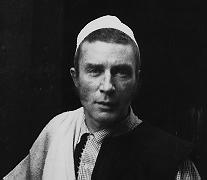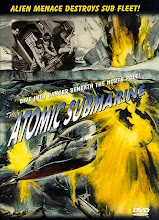Anyway, in the February 11, 1961 issue of National Review three Creeley verses appeared and one is:
A Wish
So much rain
to make the mud again,
trees green
and flowers also.
The water which
ran up the sun
and down again,
it is the same.
A man of supple
yielding manner
might, too, discover
ways of water. (p. 83)
In 1983, reviewing Creeley's Collected Poems 1945-75, Kenner wrote this lovely and right-on assertion: "But we take pleasure in words that tell us nothing, pleasure in their shapes and sounds, and also in recognizing that we are not alone and that someone else knows it." And added: "The philosopher Ludwig Wittgenstein would have been astonished by none of this, but it nudges into terrain where he was rigorous." And finally: "The point, of course, is that the words convey no information to anyone present."
Further on Kenner-Creeley: there's a file of letters between the two in the Kenner Papers at the Harry Ransom Research Center, UT Austin.










